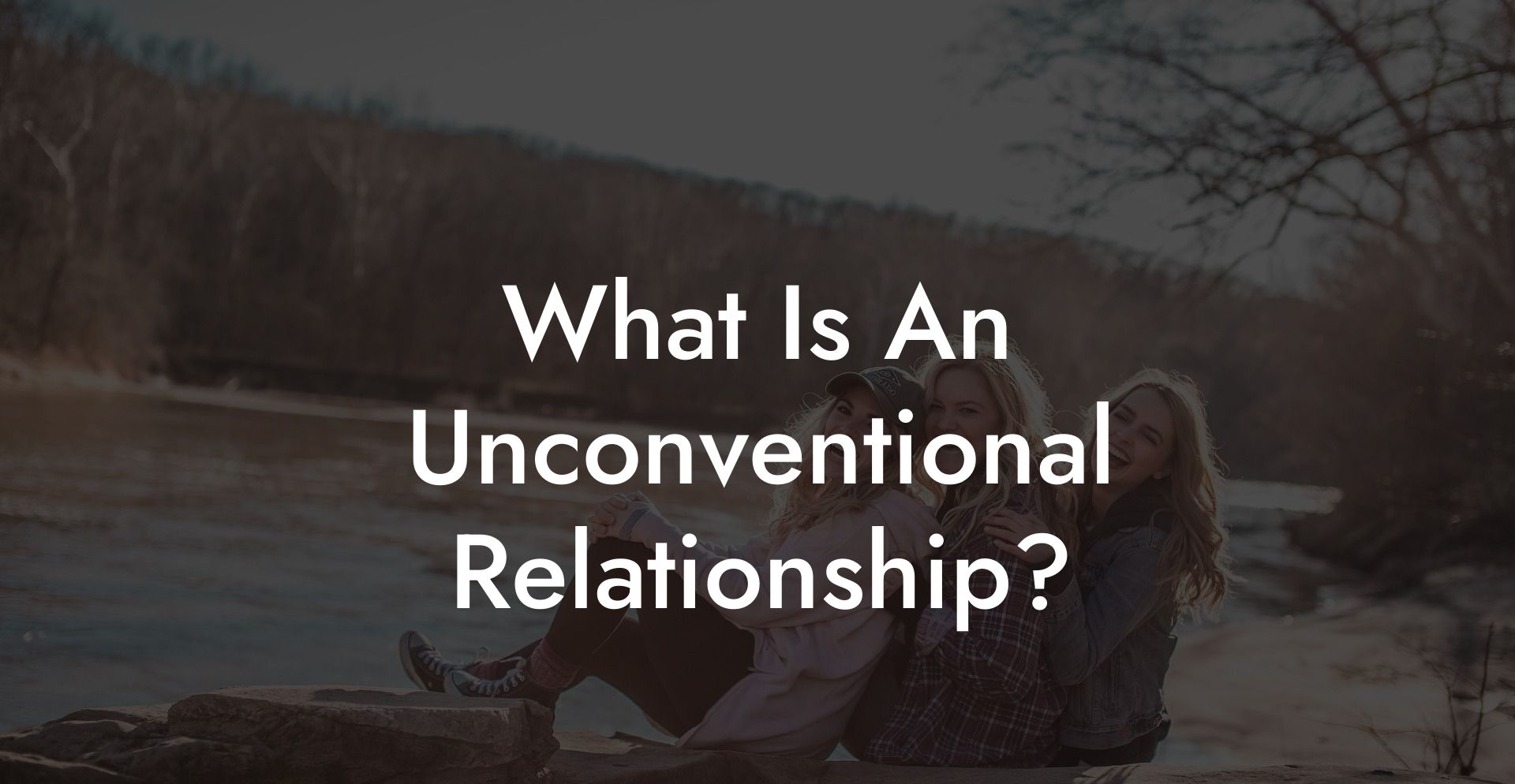Once upon a time, conventional wisdom dictated that relationships followed a simple, linear path: find a partner, fall in love, get married, and live happily ever after. However, as we've evolved as a society, our understanding of relationships has morphed, and the concept of an "unconventional relationship" has risen to the forefront of relationship discussions. An unconventional relationship deviates from the traditional monogamous model, allowing for various forms of love and connection that challenge the status quo. If you've ever wondered what it's like to explore outside the narrow confines of societal norms, you've come to the right place. In this guide, we'll break down the concept of unconventional relationships, explore their different forms, and delve into the challenges and benefits they present.
What Is An Unconventional Relationship Table of Contents
Types of unconventional relationships
Types of unconventional relationships
An unconventional relationship can take various forms, each offering unique experiences and challenges. Some include:
Polyamory
A relationship model in which a person can form loving, committed relationships with more than one partner, allowing for a network of partners that can be interconnected or distinct from one another.
Open Relationships
A mutual agreement between two partners to explore romantic or sexual connections with others outside of their primary relationship. These may come with agreed-upon boundaries, rules, and preferences.
Swinging
A consensual, non-monogamous arrangement in which a couple invites others to explore sexual encounters with them, often emphasizing recreational sex over emotional connections.
Relationship Anarchy
A philosophy that rejects the traditional hierarchy of relationships; instead, each connection forms independently and doesn't have to follow societal norms or expectations.
Examples and Real-Life Scenarios
Consider Lisa and Mark, a couple engaged in an open relationship. They maintain a loving, committed partnership but have agreed to be free to explore sexual connections with others. Their open relationship permits them to maintain emotional exclusivity while experiencing a variety of sexual encounters and learning from those experiences to grow together.
On the other hand, Samantha engages in polyamory, maintaining deep, emotional relationships with several partners, each contributing different aspects of love and support. Her loving network allows her to distribute emotional burdens and negotiate distinctive boundaries with each partner, creating a harmonious, fulfilling experience.
Challenges and Benefits
Unconventional relationships undoubtedly present challenges, such as managing potential jealousy, ensuring clear communication, and establishing boundaries. However, with mutual understanding and respect for each partner's needs and desires, these challenges can be effectively navigated.
Benefits of unconventional relationships include:
Personal growth
Stepping outside your comfort zone and exploring different relationship dynamics can challenge your assumptions and stimulate personal growth.
Expanded support networks
Engaging in multiple relationships can offer a broader support network, spreading the emotional load more evenly and enriching social connections.
Improved communication skills
The success of unconventional relationships often relies on honest, open communication, fostering trust and emotional intimacy between partners.
Sexual exploration and satisfaction
Diverse relationships allow for greater variety and depth of sexual experiences, contributing to one's understanding of their desires and preferences.
In a society where conventional relationships dominate the mainstream narrative, understanding the world of unconventional relationships can be an eye-opening and transformative experience. As we learn to embrace the diverse ways people can love and connect with one another, we open ourselves to endless possibilities for growth and happiness. If this guide has piqued your interest or resonated with your own relationship experiences, please share it with your friends and explore other content on The Monogamy Experiment. Together, we can break down barriers, challenge norms, and redefine love in a way that serves us best.













